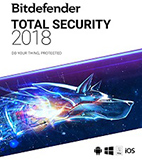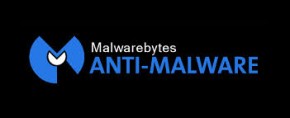For Working Parents? – ContentWatch, Inc
Parents are becoming increasingly aware of the dangers the Internet presents to children. Thankfully, legislation is requiring that schools and public locations such as libraries have Internet filtering software in place.
However, parents must still grapple with the challenges of protecting their children at home. In particular, working parents must consider their options for managing and protecting children’s access to the Internet from the workplace or at times they are away.
One product is currently leading out in this capability: ContentProtect, from ContentWatch (www.contentwatch.com). ContentProtect is a flexible, low-cost and easy-to-use software program with versions for businesses and home users.
For parents, the ability to apply professional-level controls to their home computers is providing them with new peace of mind.
For example, Cheryl Snapp Conner, a working mother of two pre-teen children, recently discovered that personal supervision of her children’s Internet activities is no longer enough.
Snapp Conner is co-owner of the Snapp Norris Group (SNG) public relations agency in Draper, Utah. Most of the time, Snapp Conner is able to manage her concerns for her children by working from her home office when her children are there. However, she recently added new protection that she can manage and monitor remotely from the office via ContentProtect.
“I make it a practice to always know when my daughter is on the computer, and to know who she is instant messaging,” Snapp Conner said. “But we’re discovering that physical supervision is no longer enough. I’m not highly technical, but when I need to be away from home at my office, it’s essential that I know my children are safe and that I be able to monitor and manage those computers remotely.”
Several weeks ago, a friend persuaded Snapp Conner’s 14-year-old daughter to set up an account on MySpace. Although it was against family rules, under peer pressure, the daughter learned how to falsify her age and set up the account without her mother’s knowledge.
When Snapp Conner discovered the situation and saw the material being posted, she was horrified. In just two days, her daughter had been solicited by complete strangers. One posting was from a youth named “Alex” who listed his age as “99” and was bragging about his sexual performance. Another message was from a 30-year-old man.
Snapp Conner had heard from a professional associate that he was able to monitor his home computers remotely with ContentProtect. She immediately obtained the software and gave it a try.
“The software is simple to install, even for a novice,” she reports. “If it’s needed, the customer support is also exceptionally good.”
The software pops up with a suggested template for filter settings that is simple to modify. Snapp Conner was also able to define acceptable parameters by username for the different family members who use the system. The parent could grant a college student, for example, more liberal access than a 14-year-old child.
The software also makes it easy to “black list” or “white list” sites that should always be available or should never be available to a particular user. “I made MySpace completely off-limits to my daughter,” Snapp Conner said. “I contacted MySpace directly to require them to take down her account. But her friend was trying to coach her in ways to get around the software and set it back up. I could see them struggling to find every way around the filtering software. They failed.”
Remote management from the office was critical as well. “I needed to go to the office for three hours while my daughter was home,” Snapp Conner reported. “Pretty soon I was getting e-mail alerts that my daughter was attempting to pull up a Google Image Search on hot sexy guys’. I called my daughter immediately and told her that the system not only blocks that kind of activities, but it also sends me an automatic message to let me know what she attempted to access.”
“My daughter stammered and sputtered and then she admitted a friend had talked her into the search, telling her she could get around the system by running a Google search. It didn’t work. She apologized and assured me she’ll never do it again.”
Remote management is more important than ever, Snapp Conner continued. Now it’s possible to set up the computer so that a parent can know if a child is slipping home from school to use the computer during the day. It’s also easy to make adjustments to the software profile remotely, if needed. For example, if a child is working on homework that requires them to access a site that is being blocked out due to gaming or chat rooms, for example, the parent can consider the question and quickly grant permission from their office or from any browser interface.
For Snapp Conner, the knowledge that the filtering software is in place has solved 90 percent of her problems.








